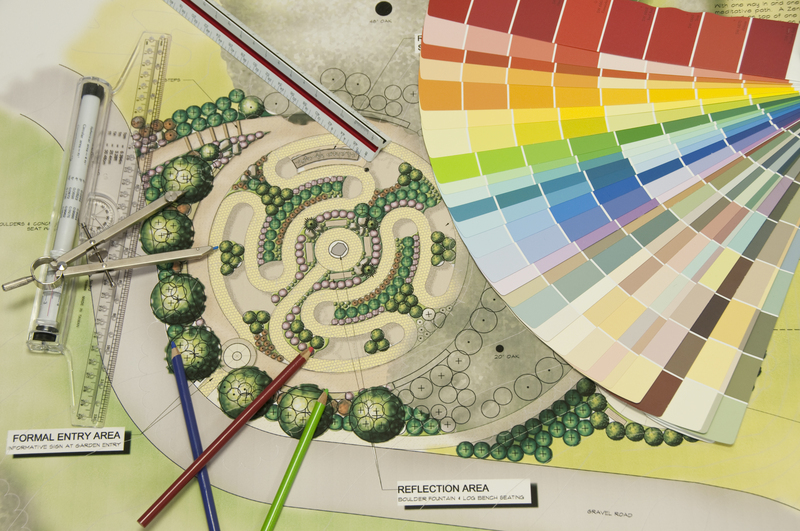From Waste Bin to Garden Bloom: Enriching Soil Naturally
Posted on 28/05/2025
From Waste Bin to Garden Bloom: Enriching Soil Naturally
Modern gardeners are increasingly seeking sustainable methods to nourish their plants and improve soil health. One of the most effective and eco-friendly practices is transforming household and organic waste into a powerful resource for your garden. From waste bin to garden bloom, learn how natural methods can rejuvenate your soil, reduce landfill contributions, and yield abundant, healthy plants.
The Journey: Turning Waste Into Rich Garden Soil
Most households generate copious amounts of organic waste each day--fruit peels, coffee grounds, eggshells, vegetable scraps, and more. Instead of heading to the landfill, these waste materials can be harnessed as a boon for your garden through composting and other natural soil enrichment strategies.
What Is Soil Enrichment?
Soil enrichment involves enhancing the fertility and structure of garden soil, typically through the introduction of organic matter and nutrients. The primary goal is to provide plants with the essential elements they need for growth, robust health, and resistance to disease, all while keeping environmental impact to a minimum.
Why Choose Natural Soil Enrichment?
Natural soil enrichment methods rely on organic waste rather than synthetic chemicals. This has numerous benefits:
- Reduces pollution by diverting organic materials from landfills.
- Builds healthy, living soil teeming with beneficial microbes.
- Boosts plant nutrition without the need for synthetic fertilizers.
- Improves soil structure and water retention over time.
- Supports sustainable and eco-friendly gardening practices.

Waste Bin to Garden: Understanding the Composting Process
Composting: The Core of Natural Soil Enrichment
At the core of natural soil enrichment is composting--the controlled decomposition of organic materials. Through this process, kitchen scraps, lawn clippings, and other biodegradables turn into mineral-rich compost that can be added directly to your garden beds.
How Does Composting Work?
Composting works by providing the right conditions for microbes, fungi, and earthworms to break down organic waste. The process can be broken down into four main phases:
- Mesophilic phase: Moderate temperatures encourage rapid breakdown of easy-to-digest materials.
- Thermophilic phase: Heat-loving microbes take over, decomposing tougher materials and killing pathogens.
- Cooling phase: Activity decreases and more complex organic structures are slowly broken down.
- Curing phase: Compost matures into stable, humus-rich soil amendment.
Essentials of a Great Compost Pile
For the best results in enriching soil the natural way, your compost pile needs:
- Greens: Nitrogen-rich materials like vegetable scraps, grass clippings, and coffee grounds.
- Browns: Carbon-rich ingredients such as dried leaves, cardboard, and straw.
- Water: Maintains the right moisture level (similar to a wrung-out sponge).
- Air: Periodically turning your pile provides the oxygen necessary for decomposition.
Pro Tip: Aim for a healthy balance of two parts browns to one part greens for optimal composting.
Other Natural Methods for Enriching Soil
Vermicomposting: Harnessing Worm Power
Vermicomposting uses special worms (usually red wigglers) to consume food scraps and produce incredibly nutrient-rich worm castings. These worm castings are a soil superfood--rich in nitrogen, phosphorus, potassium, and beneficial microbes.
Benefits of Vermicomposting:
- Produces high-quality, instantly available plant nutrients.
- Operates indoors or outdoors in compact bins.
- Reduces food waste rapidly and effectively.
Leaf Mold: The Free Soil Conditioner
Another simple, natural method involves collecting fallen leaves and allowing them to decompose into leaf mold. This crumbly, earthy substance enhances soil structure, drainage, and moisture retention, making it an excellent mulch or soil additive.
Grasscycling: Lawn Clippings for Soil Health
Leave grass clippings on your lawn after mowing ("grasscycling") returns valuable nitrogen and organic matter to the soil, reducing the need for fertilizers and minimizing garden waste.
Practical Steps: Transforming Waste Into Garden Gold
Building a Compost System
You don't need fancy equipment to get started. Whether you have a spacious backyard or a small patio, composting can fit your lifestyle:
- Pile Composting: Simply heap organics in a corner of your garden, turning occasionally for aeration.
- Bin Composting: Use a simple bin or tumbler to contain and mix your materials--a great choice for urban spaces.
- Vermicompost Bins: Perfect for kitchen scraps and apartment dwellers.
What To Compost--and What to Avoid
Good compost ingredients:
- Fruit and vegetable scraps
- Coffee grounds and filters
- Eggshells
- Shredded paper and cardboard
- Grass clippings and leaves
- Small plant trimmings
Avoid adding:
- Meat, dairy, grease, or oils
- Diseased plant material
- Pet waste
- Glossy paper or synthetic materials
Maintaining Your Compost Pile
- Turn regularly to aerate and speed up decomposition.
- Monitor moisture--add water if it's too dry or browns if it's too wet.
- Keep a lid or tarp on the pile to retain warmth and moisture.
- Be patient: it can take several months for finished compost, but the wait is worth it.
Applying Finished Compost to Your Garden
When your compost turns dark, crumbly, and earthy-smelling, it's ready to use. Here's how to make the most of your garden's new resource:
- Mix into planting beds to boost fertility and biological activity.
- Top-dress around established plants, leaving space near stems.
- Blend into potting mixes for container gardening.
- Use as a nutrient-rich mulch to suppress weeds and retain moisture.
Natural Soil Enriching Alternatives: Beyond Compost
Green Manures and Cover Crops
Growing and then turning under cover crops like clover, vetch, or rye adds organic matter to the soil, prevents erosion, and naturally fixes nutrients like nitrogen.
Biochar
Biochar--charred organic matter--boosts soil fertility, retains moisture, and enhances microbial life. Adding biochar to your garden is a time-honored technique for long-term soil health.
Mulching with Organic Materials
Use straw, shredded leaves, or wood chips as mulch to gradually break down and feed your soil, conserve moisture, and protect delicate roots.
Fermented Plant Juices and Teas
Soak plant material or compost in water to create a nutrient-rich "tea" that can be applied directly to soil or as a foliar spray, giving your plants an instant organic boost.
Benefits of Natural Soil Enrichment for Your Garden
- Improved soil structure: Loosens dense soils and binds sandy soils, creating the ideal root environment.
- Enhanced microbial activity: Supports beneficial bacteria and fungi that help plants absorb nutrients.
- Increased nutrient availability: Plants receive a steady supply of essential nutrients over time.
- Disease and pest resistance: Healthy soil encourages robust, less susceptible plants.
- Eco-friendly and cost effective: Slashes reliance on commercial fertilizers while recycling household waste.
Common Challenges (and Solutions) in Natural Soil Enrichment
Enriching your garden soil naturally isn't completely without hurdles. Here are a few typical challenges and easy solutions:
Smelly or Wet Compost
- Cause: Too much "green" material or poor aeration.
- Solution: Turn the pile and add more browns for a better balance.
Pests in the Compost Pile
- Cause: Addition of animal products or accessibility to wildlife.
- Solution: Only compost plant-based scraps and cover your pile with a secure lid or mesh.
Slow Decomposition
- Cause: Lack of moisture, air, or incorrect ratio of greens to browns.
- Solution: Adjust water content, aerate the pile, chop materials finely, and rebalance the mix.

Conclusion: Nourish Your Garden, Nourish the Earth
Transforming everyday waste into a resource for your garden completes a vital sustainability circle, directly reducing your environmental footprint and creating healthier, more productive plants. By cultivating compost, embracing alternatives like vermicomposting and green manures, and applying the resulting organic matter, you naturally enrich your soil--no chemicals required.
By turning waste bins into treasure troves for your garden, you invest in a blooming oasis that benefits your plants, your table, and the planet. Start today--let natural soil enrichment be the foundation of your garden's success and beauty.
Frequently Asked Questions
Can I compost all food waste?
No. Avoid composting meats, dairy, oils, and diseased plants. Focus on fruit, vegetable scraps, grains, coffee grounds, eggshells, and yard waste for effective and safe composting.
How long does it take to turn waste into usable compost?
On average, compost is ready in 2-6 months, depending on pile management, material mix, and environmental conditions.
What are the signs of good compost?
Finished compost is dark brown, crumbly, and has an earthy smell, with no recognizable food scraps remaining.
Does natural enrichment really make a difference?
Absolutely! Amending your soil with compost and other organics boosts fertility, plant health, and long-term garden resilience.
Ready to go from waste bin to garden bloom?
Start small, stay consistent, and enjoy the fruits and blooms of your eco-friendly labor!
Latest Posts
Taking the First Steps in Your Garden's Makeover
Strong Gardens: Techniques to Withstand Harsh Weather
Design an Elegant Garden Escape with Inspired Seating Solutions

